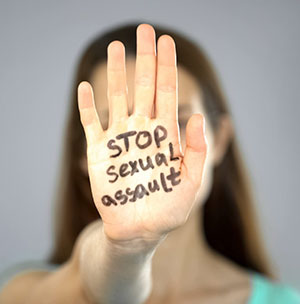LAST week I wrote about sexual harassment and I thought it should be separated from another serious issue — sexual assault, both regrettably prevalent within our society.
Sexual assault is in the more physical sense and refers to any inappropriate sexual contact without the given consent of the victim. Common examples are unwanted touching and groping to forcing the victim to perform sexual acts such as oral sex or penetration, also known as rape. To be clear, rape is a term that legally, can only be used when there is penetration. It is also important to note that forcing someone doesn’t always have to be physical. Someone can emotionally manipulate, threaten or coerce another individual to perform a sexual act and it will still be considered assault.
Sexual assault can happen to anyone, by anyone. Meaning, a victim can be sexually assaulted or raped by strangers, their friends, neighbours or even partners. Actually, a serious problem is that most people who were or are being sexually assaulted were/are done so by someone they know. This makes it that much harder to come forward and share the truth. While most perpetrators are men, men are often victims of sexual assault as well.
Sexual assault results in a wide range of both physical and mental issues. Even if it happens in childhood, the effects follow one throughout life and have impacts that may initially not even be personally visible. Most victims that I speak to, whether it happened recently or over 15 years ago, have weekly flashbacks of the assault which negatively impacts their day and interrupts their sleep. Sexual assault results in low self-esteem and low self-confidence, shame, isolation, severe guilt or even denial. It damages current and future relationships as the victims lose trust, respect and faith in others and even themselves. This then results in tremendous loneliness and feelings of helplessness. The assault, whether severe or not, can result in many mental illnesses -depression, anxiety, Post-traumatic stress disorder, substance abuse disorders, self-harm behaviours and suicidal thoughts and behaviours to name just a few.
Issues with sleeping and night terrors are also quite common. Of course, all the above can result in a lack of productivity and efficiency, which means that the victim tends to lose employment or even drop out of school after the assault.
Of course, the damage is more severe if the assault is committed by someone who is known to the victim — a friend or family member who remains in their life. For children, incest –- which means someone in the immediate family, is the most common type of sexual assault.
Many who experience sexual assault also experience physical injuries. The most common include tearing, bleeding, bruising, broken bones or infections. In other cases, the victims may become pregnant or become infected with STDs, HIV or AIDS. Keep in mind, that if emotionally coerced, some victims may have sustained no injury at all– believe them anyway if they open up to you.
After the assault, the victim tends to develop unhealthy views of sex. They may shy away from it completely or be quite promiscuous and often engage in sexual activity.
There are a few myths about sexual assault that should be cleared up.
Myth- Sexual assault cannot be committed by a partner or spouse.
Myth- If the victim had an orgasm that means they wanted it, enjoyed it and it was not assault.
Myth- People who are sexually experienced cannot be victims of sexual assault.
Myth- If someone has consented once, that means they automatically consent again.
Myth- Sexual assault is rare and hasn’t happened to anyone else around you.
These myths are a big reason why victims do not come forward. Other reasons may be:
Embarrassment, confusion, fear or the dread of thinking that no one will believe them or even worse, blame them.
Because of society’s view, it is common for the victim to blame themselves – thinking they did something to cause, allow or even deserve the assault. There have been too many times when I heard, “but why she out so late?” or “her skirt was very short.”
I cannot even believe I have to say this but a person’s dress, location nor persona is an invitation or excuse for violation.
There are some things that we as a society can do to help our victims.
Believe and help them when they are strong and brave enough to speak out. Avoid using trigger words facetiously. For example, I have heard some people use language like, “that exam raped me.” It is very dangerous to use language so freely, not knowing who around you has suffered an assault. Offer unwavering support to those who have been assaulted and do not participate in victim-blaming.
Most importantly, if you see someone in a compromising position, step in and do something about it.
For those who have experienced sexual assault, know your triggers and try to avoid them as much as possible. Start a support group with others that may have experienced the same assault– trust me, they are out there.
There are also these organisations to call and or go in if you have ever experienced sexual assault.
1. Help and Shelter- Homestretch Avenue, Durban Park. 225-54731/ 227-8353
2. Ministry of Social Protection – East Bank Team- 227-0137
– Georgetown- 227-4082/ 225-1117
3. Guyana Responsible Parent Association (GRPA) – 70 Quamina Street, South Cummingsburg. 225-53286/ 225-0739
Thank you for reading and please send in any topics to caitlinvieira@gmail.com.
If you would like personal counselling sessions, please contact me at +592 623 0433
Suicide Prevention Helpline Numbers – 223-0001, 223-0009, 623-4444 or 600-7896
Say Yes to Life and No to Drugs! Always!










